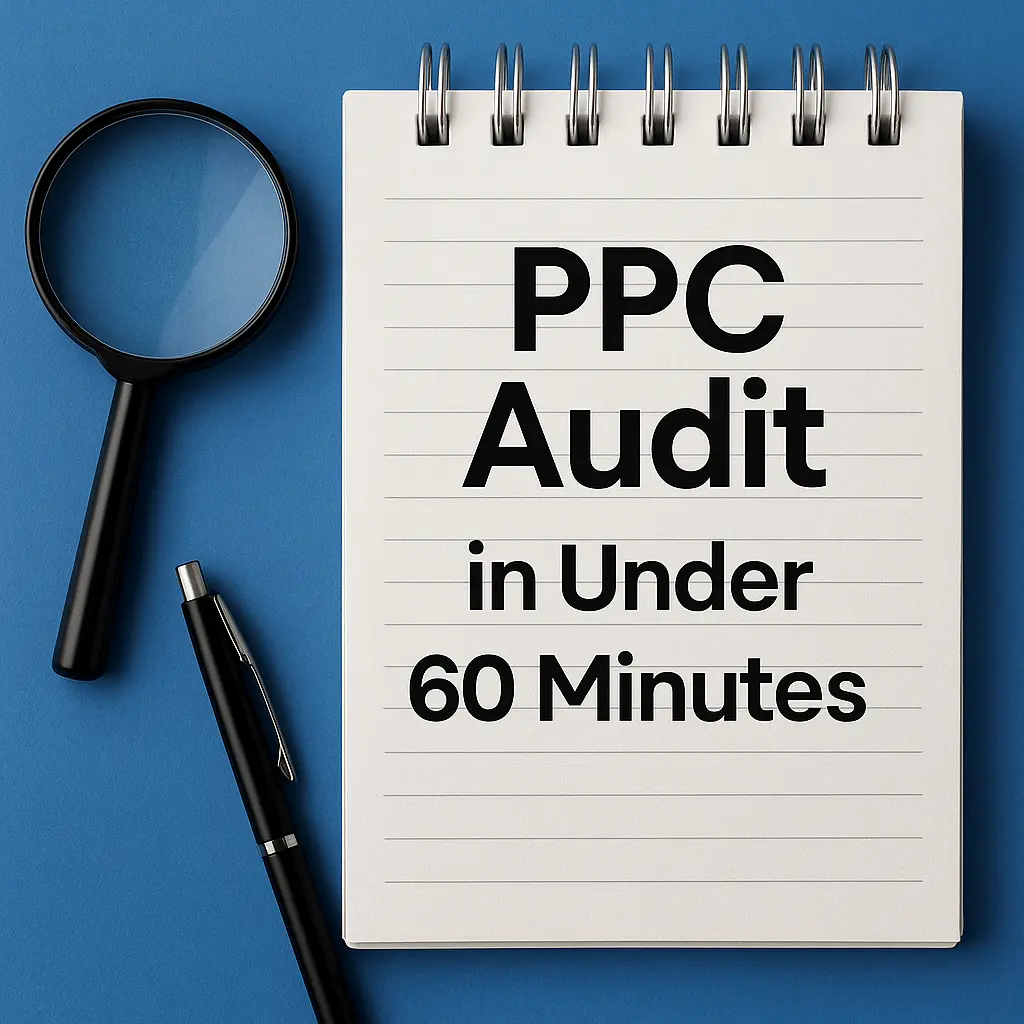
Introduction
Financial technology (FinTech) is reshaping the global economy, with startups and traditional institutions racing to offer digital banking, payments, and lending solutions. In this competitive landscape, having a cutting-edge product isn’t enough—you need a strong online presence to reach your audience. SEO for FinTech is the key to improving visibility on search engines like Google, driving organic traffic, and building trust with potential customers. At RnD Marketing, we specialize in helping FinTech companies navigate these challenges and achieve top search rankings through tailored SEO strategies. This guide explores why SEO matters, the unique challenges FinTech faces, and actionable tactics to dominate search results while fostering credibility.
Whether it’s a small business looking for payment gateways or an individual seeking budgeting apps, FinTech customers turn to search engines to explore and compare services. SEO for FinTech is uniquely challenging due to strict regulatory requirements, complex industry jargon, and the need to meet Google’s “Your Money or Your Life” (YMYL) standards, which demand expertise, authority, and trustworthiness (E-A-T). This article dives into why SEO is vital for FinTech companies, the obstacles they face, and practical strategies to enhance search rankings and build credibility in this dynamic sector.
Why SEO Matters for FinTech Companies
SEO for FinTech is a game-changer for organic growth and customer acquisition. Here’s why it’s indispensable:
- Cost-Effective Growth: Customer acquisition in financial services can be pricey, averaging $784 per customer. Paid ads like PPC can drain budgets quickly, especially for startups. SEO for FinTech provides a sustainable alternative, driving organic traffic without ongoing ad spend. A strong SEO strategy delivers a steady stream of leads over time, making it a smart investment.
- High Competition: The FinTech market is crowded, with banks, startups, and tech giants all targeting keywords like “online loans” or “digital wallets.” If your site isn’t on the first page of search results, you’re likely invisible to potential users. SEO for FinTech helps even smaller players rank higher by focusing on niche keywords and optimized content, giving them a fighting chance against bigger competitors.
- Trust and Credibility: In finance, trust is everything. Users need assurance that a FinTech service is secure and reliable before they engage. Ranking high on Google signals legitimacy, but SEO for FinTech goes further by ensuring content meets E-A-T standards. For example, a payment platform that ranks for “secure online transactions” with expert-backed content can win user confidence.
- Long-Term Results: Unlike paid campaigns that halt when funds dry up, SEO for FinTech offers enduring value. A blog post like “How to Choose a Cryptocurrency Wallet” can attract traffic for years if it’s well-optimized and evergreen. Given the high lifetime value of FinTech customers, this longevity translates into significant ROI.
Consider a real-world example: a FinTech company offering peer-to-peer lending might struggle to outbid banks on PPC ads. By targeting long-tail keywords like “fast personal loans with no collateral” and creating valuable content, they can climb search rankings and draw in organic leads cost-effectively.
Unique SEO Challenges in FinTech
SEO for FinTech isn’t straightforward – it comes with hurdles that demand specialized approaches:
- Regulatory Compliance: FinTech operates in a heavily regulated space. Content must avoid misleading claims or non-compliant advice, such as promising unrealistic returns. For instance, a lending app must align its SEO content with financial advertising laws, adapting quickly to regulatory shifts to stay penalty-free.
- Complex Terminology: FinTech products often involve terms like “blockchain interoperability” or “open banking APIs,” which can confuse non-experts. SEO for FinTech must strike a balance – using technical language for pros while simplifying it for casual users. This dual approach broadens keyword reach and improves accessibility.
- High SERP Competition: Finance-related keywords are dominated by big players—banks, Investopedia, and news sites. SEO for FinTech requires targeting less competitive, specific phrases like “best expense tracker for startups” to gain traction without clashing with high-authority domains head-on.
- Trust and Security Concerns: Google’s YMYL guidelines prioritize sites with strong E-A-T for financial topics. SEO for FinTech must highlight security (e.g., HTTPS encryption) and trust signals (e.g., certifications, transparent policies) to satisfy both users and search algorithms.
Fast-Paced Industry: Trends like decentralized finance (DeFi) or AI-driven investing shift user search behavior rapidly. SEO for FinTech needs to stay ahead by refreshing content to match emerging keywords, such as moving from “mobile banking” to “AI budgeting tools” as the market evolves.
Key SEO Strategies for FinTech Success
To outrank competitors and win the trust of your audience, FinTech companies should implement a comprehensive SEO strategy that covers content, on-page optimization, technical enhancements, and off-page authority building. Here are the core components:
In-Depth Keyword Research & Content Strategy
A strong content foundation for SEO for FinTech begins with thorough keyword research tailored to your niche. Rather than targeting only broad, highly competitive terms (like “online banking” or “payment app”), focus on long-tail keywords and user intents specific to your domain. For example, a payments startup might target phrases like “best payment gateway for small business,” while a robo-advisor might pursue “how to start investing with $100.” Long-tail queries may have lower search volume, but they often reflect higher intent and less competition, allowing you to capture a more qualified audience.
Build a content plan around the needs and pain points of your target users. Use SEO tools (Google Keyword Planner, Ahrefs, SEMrush) to discover what questions people ask about your services. If many users search “How secure is mobile banking?”, consider writing an authoritative blog post or guide on that topic. FinTech audiences value educational content – think blog posts, whitepapers, tutorials, and FAQs that explain complex financial concepts in simple terms. By addressing these queries, you not only improve SEO rankings for those topics but also establish your brand as a helpful expert.
Organize your content in a logical structure on your site. Use content siloing or topic clustering – group related posts under relevant categories (for example, a cluster of articles under “Blockchain in Finance” interlinked together). This helps search engines understand your site’s topical expertise and can improve rankings for all pages in the cluster. A well-structured content strategy not only boosts SEO for FinTech companies but also creates a better experience for users navigating your insights.
E-A-T Principles
Expertise: Ensure the content is accurate and written (or reviewed) by people with financial knowledge or credentials. If possible, have articles bylined by your finance or tech experts.
Authoritativeness: Cite reputable sources, include statistics or insights from industry research, and cover topics in depth. For instance, providing a data-backed analysis of “trends in digital lending 2025” can attract backlinks and mentions, boosting your site’s authority.
Trustworthiness: Include trust signals in content and around it. This can mean having up-to-date SSL security, a clear “About Us” page, detailed contact information, and customer testimonials on the site. (Google’s quality guidelines even emphasize that sites handling money should prominently display customer service info and contact details to build trust).
On-Page and Technical Optimization
Even the best content won’t perform if your site isn’t optimized for search engines and user experience. FinTech companies need to pay special attention to on-page SEO fundamentals and technical performance when pursuing SEO for FinTech tactics:
Meta Tags and Headings
Craft compelling, keyword-rich title tags and meta descriptions for each page, indicating relevance to FinTech queries. For example, instead of a generic title like “Our Services,” use “Small Business Invoice Financing Platform – [Your Company Name]”. Ensure that each page has a unique title and description. Likewise, structure your content with clear headings (H1, H2, H3) that incorporate keywords naturally and guide readers through the content.
Mobile-Friendly Design
A huge portion of fintech searches and service usage happens on mobile devices. Your website must be mobile-responsive and easy to navigate on small screens. Google uses mobile-first indexing, so mobile optimization is non-negotiable. Check that all page elements (forms, tables, images) work well on mobile. A poor mobile experience can hurt both SEO and conversions.
Site Speed and Core Web Vitals
FinTech apps and platforms often have rich feature sets, but your marketing website should still be lean and fast. Optimize images, use efficient code, and leverage CDNs to ensure fast load times. Page speed is a ranking factor, and slow sites can lead to higher bounce rates. Google’s Core Web Vitals (LCP, FID, CLS) measure loading performance, interactivity, and visual stability – all of which should be in good shape. A fast, smooth site not only ranks better but also reassures users that your tech is reliable.
Security (HTTPS)
Serving your site over HTTPS is mandatory, especially when dealing with financial information. Users (and Google) will shy away from a fintech site that isn’t secure. Make sure your SSL certificate is always up to date. Additionally, display trust badges or security certifications if relevant (for example, PCI compliance for payment processors) to reinforce trust.
Technical Health
Regularly audit your site for technical SEO issues. Ensure you have an up-to-date XML sitemap that lists all important pages, a properly configured robots.txt (so that search engines can crawl what they need to and stay out of secure areas like user account pages), and no broken links or dead pages. Given the rapid growth many FinTechs experience, it’s wise to run SEO audits periodically to catch issues early (like duplicate content, missing meta tags, or pages not being indexed).
By fortifying your site’s on-page and technical foundation, you create a smooth pathway for search engine crawlers and instill confidence in users who visit. FinTech users are especially sensitive to quality and security, so a technically robust site is part of marketing your reliability.
Building Authority Through
Off-page SEO – activities that happen outside your website to boost rankings – is particularly important in SEO for FinTech because of the need to build authority and trust. Off-page factors primarily revolve around earning quality backlinks and mentions of your brand around the web. Here’s how FinTech firms can approach it:
Quality Backlinks from Relevant Sites
Search engines see backlinks as votes of confidence. Focus on getting links from reputable, finance or tech-related websites. This could include fintech news outlets, industry blogs, or partner organizations. One effective tactic is guest posting: contribute thought leadership articles or research insights to well-known finance publications or high-authority blogs. Not only do you gain a backlink, but you also position your brand in front of a relevant audience.
Content Marketing and PR
Give others a reason to talk about and link to your company. Publish original research (e.g., a report on consumer fintech adoption trends), infographics illustrating complex data, or handy tools/calculators – these tend to attract references from other sites. For instance, a study on “2025 Mobile Payment Usage Statistics” might get cited by journalists or bloggers, earning you links. Engaging in PR by getting your company featured in press releases, interviews, or podcasts can also naturally lead to backlinks and increased brand searches.
Consistency and Brand Mentions
Ensure your company’s name, address (if applicable), and other details are consistent across the web. This is more of a local SEO concern, but if you have a physical office or if local trust signals matter (e.g., a fintech serving a specific country and regulated there), consistency in directories and LinkedIn, Crunchbase profiles, etc., helps. Additionally, even unlinked brand mentions (your company name appearing in articles without a hyperlink) are picked up by search engines and contribute to your brand’s authority. Set up Google Alerts or use SEO tools to monitor mentions of your brand and reach out to request a link when appropriate.
Off-Page SEO Summary
Remember, off-page SEO is as much about quality as quantity. A single backlink from a highly respected financial website or a government fintech sandbox directory can outweigh dozens of links from low-quality sites. Focus your efforts where they count. Over time, as you build a portfolio of strong backlinks and mentions, search engines will recognize your FinTech site as authoritative, which in turn boosts all your pages in the rankings.

Conclusion
The world of SEO for FinTech is challenging but immensely rewarding. By addressing the unique hurdles of the industry – from regulatory compliance to the need for user trust – and implementing a robust strategy covering content, technical optimizations, and authority building, FinTech companies can significantly enhance their online visibility. This means more organic traffic, lower customer acquisition costs, and greater brand credibility in an industry where trust is everything. As one industry expert put it, “Trust is the currency of fintech marketing”. A well-executed SEO strategy helps earn that currency by showcasing your expertise and reliability to both search engines and users.
However, SEO is a continuous journey, not a one-time project. It requires ongoing monitoring, fresh content creation, and adaptation to algorithm changes and industry trends. Many successful financial technology companies partner with professionals to manage this complexity. RnD Marketing is a performance marketing agency that understands how to bridge the gap between technical development and marketing strategy. We are an ideal fit for FinTech firms looking to amplify their SEO impact. With our expertise in SEO and content (and deep experience in tech-driven industries), we can craft a custom strategy that drives real results for your business.
Ready to elevate your FinTech company’s SEO performance? Get in touch with our team to see how our SEO services can help you dominate search rankings and win loyal customers. Don’t let your fintech innovation go undiscovered – contact RnD Marketing today and let’s achieve “mind-blowing” results together!
FAQ
Q1: What is FinTech SEO?
A: FinTech SEO refers to search engine optimization strategies specifically tailored for financial technology companies. It involves optimizing a FinTech website’s content, keywords, technical setup, and off-site authority so that the company’s products or services (such as banking apps, digital wallets, lending platforms, etc.) rank higher on search engine results pages. The goal is to attract more organic (non-paid) traffic from search engines by ensuring that when people search for financial solutions or questions (for example, “best budgeting app” or “how do digital loans work”), they find the FinTech company’s website. In practice, FinTech SEO includes creating high-quality educational content, using relevant finance-related keywords, making sure the site is secure and fast, and building credibility through backlinks and fintech industry mentions.
Q2: Why do FinTech companies need SEO if they can use PPC ads?
A: While pay-per-click (PPC) advertising can quickly get a FinTech company visibility at the top of search results, it can be very expensive – and it stops working the moment you stop paying. SEO, on the other hand, is a cost-effective, long-term strategy. By investing in SEO, FinTech companies can reduce their reliance on paid ads and lower their customer acquisition costs over time. Organic search results also tend to earn more trust from users than ads. Many people skip paid ads and click on the top organic results because they perceive them as more credible. Additionally, SEO and content marketing build your brand’s authority by providing valuable, informative content that attracts leads 24/7. Ultimately, a combination of both SEO and PPC often works best. PPC provides immediate traffic for short-term campaigns, but SEO is crucial for sustainable growth and long-term ROI.
Q3: How can a FinTech startup get started with SEO?
A: A FinTech startup should begin by laying a solid SEO foundation. Start with thorough keyword research to find out what your target customers are searching for (e.g., “best fintech app for saving money”). Use those insights to create useful content such as blog posts, guides, or FAQs that answers those questions and naturally incorporates the keywords. At the same time, ensure your website is technically optimized. it should load quickly, be mobile-friendly, and use HTTPS for security. Implement basic on-page SEO elements like descriptive title tags, meta descriptions, and clear headings on each page. As you publish content, promote it via social media or outreach to industry blogs to earn some initial backlinks. It’s also helpful to get listed on relevant directories or review sites for visibility.
Using free tools like Google Analytics and Search Console will allow you to monitor your traffic and spot issues (like broken links or pages not indexing). Remember that SEO takes time – consistently add quality content and build links, and over a few months you should start seeing improvements in your search rankings. If budget permits, working with an experienced SEO agency or consultant (who understands SEO for FinTech specifically) can accelerate your progress and help avoid common pitfalls.





